Vegan Globetrotter is supported by our audience. When you purchase through one of our links, we may earn a small affiliate commission. As an Amazon Associate I earn from qualifying purchases. Your cost is not affected.
==================
Chia seed nutritional benefits are remarkable, offering a powerhouse of nutrients that can elevate your overall health. Rich in omega-3 fatty acids, fiber, protein, and essential minerals like calcium and magnesium, these tiny seeds have become a go-to superfood for health enthusiasts. Whether you’re looking to improve digestion, boost energy, or maintain a healthy heart, chia seeds provide an easy and effective way to enhance your meals. Their mild, nutty flavor makes them versatile to both sweet and savory dishes, adding nutrition without overpowering the taste.
From energizing breakfast puddings to refreshing smoothies and crunchy toppings for salads, the ways to use chia seeds are endless. You can mix them into baked goods or make a vegan-friendly egg substitute with water. With their ability to absorb liquid and create a satisfying gel-like texture, chia seeds are nutritious and fun to experiment with in the kitchen. Explore the incredible benefits and discover creative ways to make chia seeds a staple in your daily diet!
Discovering the Power of Chia Seeds: Health Benefits and Creative Ways to Use Them
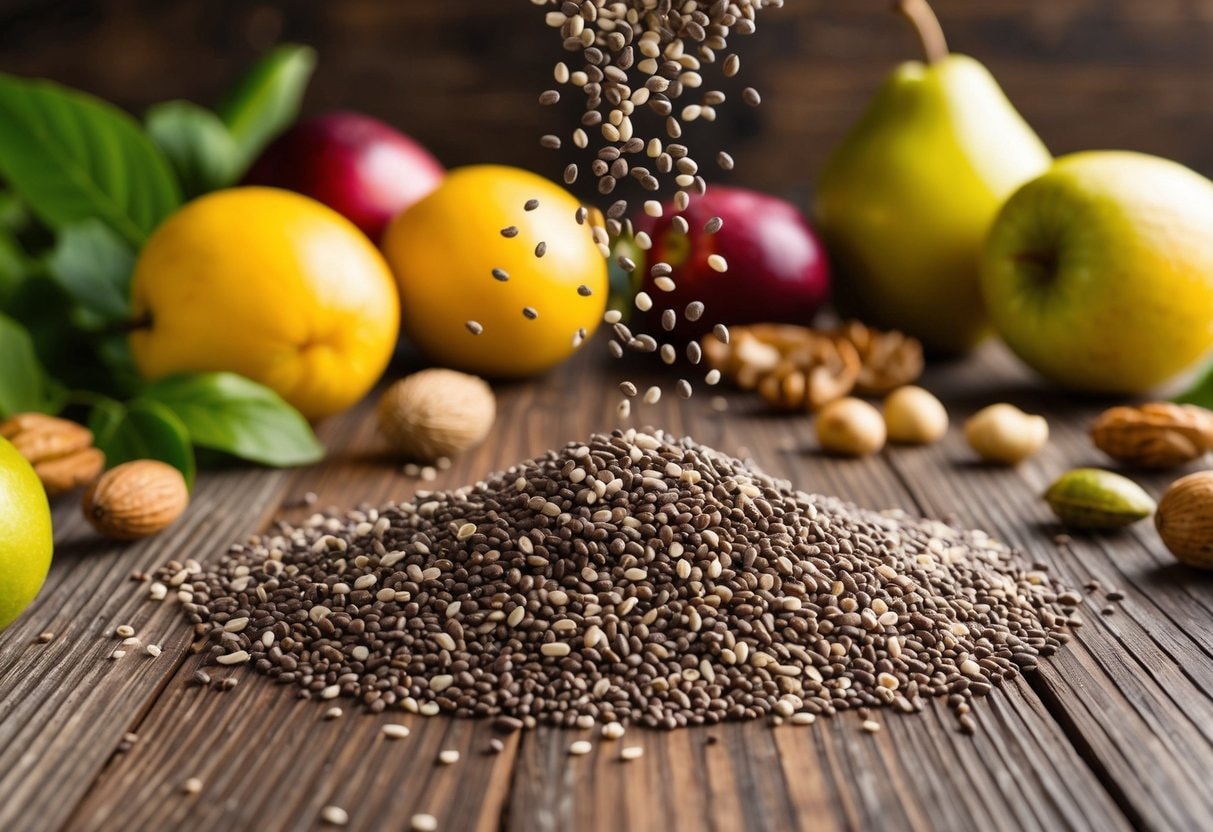
Chia seeds have gained popularity in recent years as a nutritional powerhouse. These tiny seeds pack a big punch when it comes to health benefits. Chia seeds contain fiber, protein, omega-3 fatty acids, vitamins, and minerals.
Adding chia seeds to your diet is easy and versatile. They can be sprinkled on top of yogurt, blended into smoothies, or used as an egg substitute in baking. Chia seed jam is a simple and tasty way to enjoy these nutritious seeds.
Chia seeds are safe for most people to eat, but consuming them properly is important. Soaking chia seeds before eating can help with digestion and nutrient absorption. With its many benefits and uses, chia seeds are a great addition to a healthy diet.
Key Takeaways
-
Chia seeds are packed with nutrients and offer numerous health benefits.
-
These versatile seeds can be easily added to various foods and recipes.
-
Proper preparation, like soaking, can enhance the benefits of chia seeds.
Discovering Chia Seeds
Chia seeds come from a plant with a rich history. These tiny seeds pack a big nutritional punch and have been used for centuries.
What Are Chia Seeds?
Chia seeds are small, oval-shaped seeds from the Salvia hispanica plant. They’re about the size of poppy seeds and can be black, brown, or white. When soaked in liquid, chia seeds form a gel-like coating.
These seeds are known as a superfood due to their high nutrient content. They’re packed with fiber, protein, and omega-3 fatty acids. Chia seeds also contain calcium, magnesium, and phosphorus.
People can eat chia seeds raw or add them to many dishes. They work well in smoothies, yogurt, oatmeal, and baked goods. Chia seeds have a mild, nutty flavor that blends easily with other foods.
Historical Significance of Salvia Hispanica
The Salvia hispanica plant, which produces chia seeds, has been important for thousands of years. Ancient Aztec and Maya cultures grew and used chia seeds as a staple food.
In Aztec, the word “chia” means strength. Warriors ate chia seeds for energy before the battle. The seeds were also used as currency and in religious ceremonies.
Chia fell out of use after the Spanish conquest of the Americas. But in recent years, it has come back as people rediscover its health benefits. Now, chia seeds are grown in many parts of the world and enjoyed by people everywhere.
Nutritional Profile of Chia Seeds
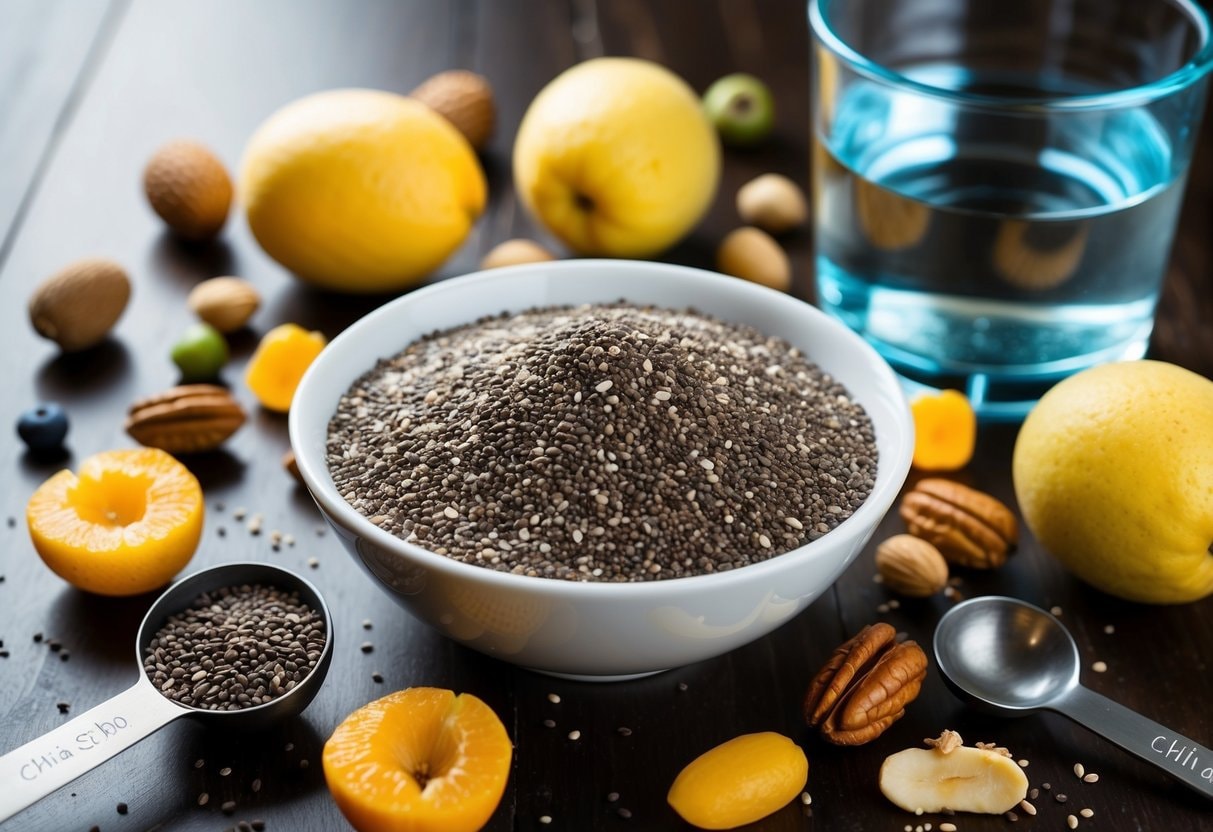
Chia seeds pack a powerful nutritional punch in a tiny package, showcasing remarkable chia seed nutritional benefits. These small seeds offer a wide range of essential nutrients that can boost your health.
Macro and Micronutrients in Chia Seeds
Chia seeds are nutrient-dense powerhouses. They contain high amounts of protein, making them great for muscle building and repair. A 1-ounce (28-gram) serving of chia seeds provides:
-
138 calories.
-
4.7 grams protein.
-
8.7 grams fat.
-
11.9 grams carbohydrates.
-
9.8 grams fiber.
Chia seeds are also rich in omega-3 fatty acids. These healthy fats help fight inflammation in the body. The high fiber content aids digestion and promotes feelings of fullness. This may help with weight management.
Vitamins and Minerals Contribution
Chia seeds are packed with essential vitamins and minerals. They’re an excellent source of calcium, magnesium, and phosphorus. One ounce of chia seeds provides:
-
18% of daily calcium needs.
-
30% of manganese.
-
27% of phosphorus.
-
30% of magnesium.
These seeds also contain zinc, copper, and selenium. These minerals support immune function and overall health. Chia seeds offer small amounts of B vitamins. These help convert food into energy for the body. While not high in vitamins, chia seeds make up for it with their impressive mineral content.
Get This:
Chia seeds have many uses outside of cooking. These tiny powerhouses can boost skin health and help create a more eco-friendly lifestyle. Chia seeds can work wonders for your skin. You can make a simple face mask by mixing ground chia seeds with water to form a paste. This helps exfoliate and hydrate the skin.
Health Benefits of Incorporating Chia Seeds
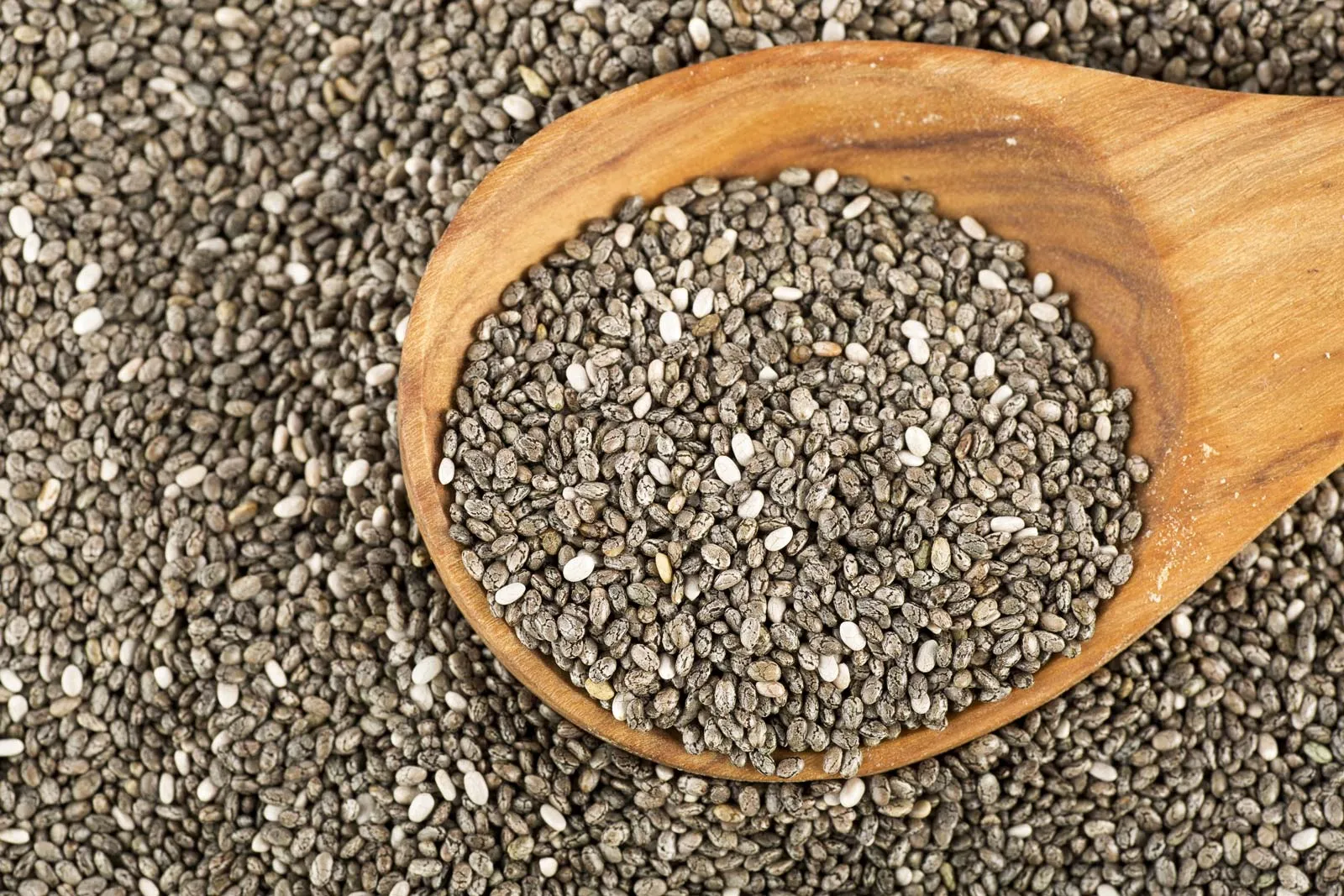
Chia seeds are tiny powerhouses of nutrition, offering numerous chia seed nutritional benefits. They provide many health perks for both the body and mind. These small seeds can make a big difference in how you feel and function.
Cardiovascular Health and Cholesterol Management
Chia seeds are good for your heart. They have omega-3 fatty acids that help keep blood vessels healthy. These little seeds can lower bad cholesterol and raise good cholesterol.
Eating chia seeds may cut the risk of heart disease. They have fiber that helps clean out arteries. This keeps blood flowing smoothly to the heart.
People who eat chia seeds often have better heart health. The seeds’ nutrients work together to protect the heart. They can help prevent heart attacks and strokes.
Chia Seeds for Blood Pressure and Blood Sugar Regulation
Chia seeds can help control blood pressure. They have minerals like potassium that relax blood vessels. This makes it easier for blood to flow.
For people with diabetes, chia seeds are helpful. They slow down how fast the body turns food into sugar. This keeps blood sugar levels steady. Eating chia seeds with meals can prevent big spikes in blood sugar. This is good for both people with and without diabetes. It helps the body use insulin better.
Improving Digestive Health with Chia Seeds
Chia seeds are great for the gut. They have lots of fiber that feeds good gut bacteria. This helps keep the digestive system running smoothly. The seeds can soak up water and form a gel. This gel helps move food through the intestines.
It can ease constipation and make bowel movements more regular. Chia seeds may also help with tummy troubles. Their anti-inflammatory properties can soothe the gut lining. This might help people with conditions like IBS feel better.
Bone Health and Muscle Function
Chia seeds are packed with calcium. This mineral is key for strong bones and teeth. Eating chia seeds can help prevent bone loss as people age. The seeds also have other minerals that bones need. These include phosphorus and magnesium.
Together, they keep bones dense and healthy. For muscles, chia seeds offer protein. This helps build and repair muscle tissue. The seeds’ nutrients also help muscles work well during exercise.
Impact on Weight Management and Metabolism
Chia seeds can be a friend to those watching their weight. They are low in calories but high in nutrients. This makes them a smart choice for healthy eating.
When eaten, chia seeds expand in the stomach. This can make a person feel full and eat less. The fiber in chia seeds also slows digestion, keeping hunger at bay.
These seeds boost metabolism. Their protein and healthy fats help the body burn calories more efficiently. This can aid in weight loss over time.
Cancer, Inflammation, and Overall Well-being
Chia seeds have antioxidants that fight harmful molecules in the body. These antioxidants may lower the risk of some cancers.
The seeds can reduce inflammation in the body. This is important because inflammation is linked to many chronic diseases. By eating chia seeds, people may protect themselves from these illnesses.
Overall, chia seeds support good health in many ways. They can boost energy, improve skin health, and even help with sleep. Adding chia seeds to the diet is a simple way to feel better and stay healthy.
Adding Chia Seeds to Your Diet
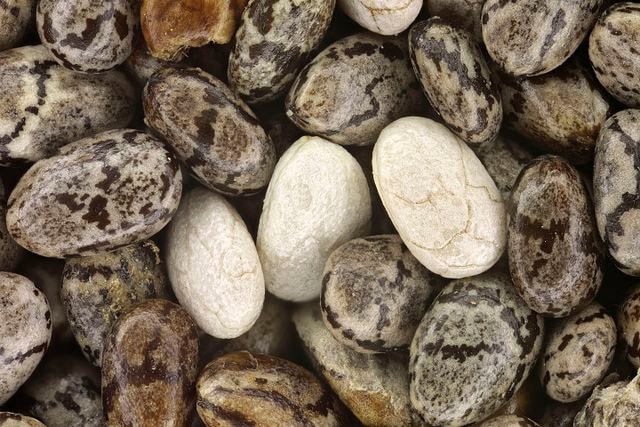
Chia seeds are easy to add to many foods and drinks, making them a great way to enjoy chia seed nutritional benefits. They have no strong taste, so they mix well with many recipes. Here are some tasty ways to eat more chia seeds and boost your health.
Chia Seeds in Baking and Cooking
Chia seeds work great in baked goods. Add them to muffins, bread, or cookies for extra fiber and nutrients. Use chia seeds instead of eggs in vegan recipes. Mix one tablespoon of chia with three tablespoons of water to replace one egg.
Chia seeds can thicken sauces and dressings. Sprinkle them on salads for a nice crunch. They also work as a healthier swap for breadcrumbs. Try this easy chia jam: Mash 2 cups of fruit with two tablespoons of chia seeds. Add honey if you want it sweeter. Let it sit for 10 minutes to thicken.
Delicious Smoothies and Yogurt Add-Ins
Chia seeds make smoothies more filling. Add 1-2 tablespoons to any smoothie recipe. They swell up and make the drink thicker. For a simple chia drink, mix chia seeds with water. Use 1/4 cup seeds to 4 cups water. Let it sit for 30 minutes before drinking.
Chia seeds are great in yogurt, too. Sprinkle them on top for some crunch. Or mix them in and wait 10 minutes for a pudding-like texture. Try this chia parfait: Layer yogurt with chia seeds and fresh fruit in a glass. Top with granola for a healthy breakfast or snack.
Creating Nutritious Chia Pudding Variations
Chia pudding is easy to make and very healthy. The basic recipe is 1/4 cup chia seeds mixed with 1 cup of milk. Let it sit in the fridge for a few hours or overnight. Try these yummy flavors:
-
Chocolate: Add cocoa powder and honey.
-
Vanilla: Use vanilla extract and maple syrup.
-
Berry: Mix in mashed berries and honey.
-
Tropical: Add coconut milk and diced mango.
Chia pudding keeps well in the fridge. Make a big batch for quick breakfasts all week.
Innovative Ways to Use Chia Seeds
Chia seeds can do more than thicken foods. Here are some fun ideas:
-
Grow Chia Sprouts: Spread seeds on a damp paper towel. Water daily and watch them grow.
-
Make Chia Water: Soak seeds in water for a refreshing drink.
-
Use as Egg Substitute: Great for vegan baking.
-
Blend Into Energy Bars: Add to homemade granola bar recipes.
-
Sprinkle on Avocado Toast: Adds extra crunch and nutrients.
Chia seeds can even help you eat less. Their gel-like texture makes you feel full. Try adding them to foods you already eat for an easy nutrition boost.
Understanding the Side Effects of Chia Seeds
Chia seed nutritional benefits are undeniable, but they can cause unwanted effects if not consumed properly. When incorporating chia seeds into their diet, people may experience allergic reactions or digestive issues.
How Much is Too Much? Addressing Overconsumption
Eating too many chia seeds can lead to problems. A good daily amount is 1-2 tablespoons. More than that might cause:
• Stomach pain.
• Gas and bloating.
• Constipation.
Chia seeds soak up lots of water. This can make you feel very full. It’s best to start with small amounts and increase slowly. Drink plenty of water when eating chia seeds. This helps them move through your system. It also prevents dehydration.
Managing Allergic Reactions and Digestive Concerns
Some people may be allergic to chia seeds. Signs of an allergy include:
• Skin rashes.
• Trouble breathing.
• Swelling of the mouth or throat.
Stop eating chia seeds and see a doctor if you notice these symptoms.
For Those With Sensitive Stomachs, Chia Seeds Might Cause:
• Diarrhea.
• Stomach cramps.
• Excessive gas.
To avoid these issues, soak chia seeds before eating. This makes them easier to digest. Start with small amounts to see how your body reacts. People with swallowing problems should be careful. Dry chia seeds can expand in the throat and cause choking.
Chia Seed Nutritional Benefits: Tips and Tricks for Chia Seed Usage
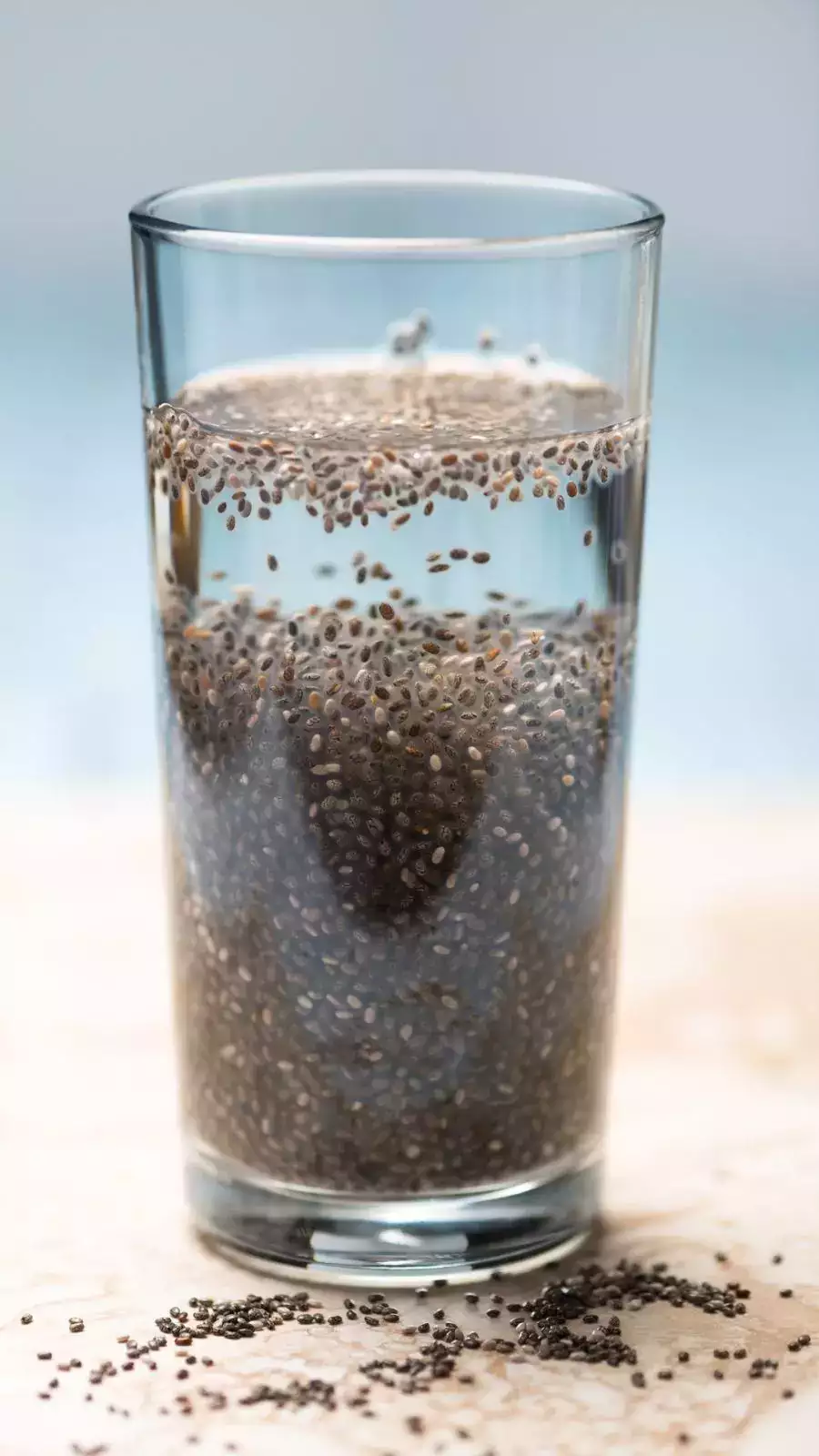
Chia seeds are easy to use, but a few simple tricks can help you get the most out of them. These tips will make chia seeds more digestible and tasty while also keeping them fresh longer.
Soaking Chia Seeds for Optimal Benefits
Soaking chia seeds before eating them can boost their health benefits. When soaked, chia seeds form a gel-like substance that’s easier to digest. To soak chia seeds:
-
Mix 1 part chia seeds with six parts water.
-
Let sit for 15 minutes to 2 hours.
-
Stir occasionally to prevent clumping.
Soaked chia seeds work well in smoothies and puddings and as an egg substitute in baking. They add a nice texture to foods and help you feel full longer.
Mix one tablespoon of seeds in a glass of water for a quick chia drink. Let it sit for 5 minutes, then drink. This can help with hydration and provide a boost of nutrients.
Storing and Preserving Chia Seeds
Proper storage keeps chia seeds fresh and preserves their nutrients. Chia seeds can last up to 2 years when stored correctly. Tips for storing chia seeds:
-
Keep in an airtight container.
-
Store in a cool, dry place away from sunlight.
-
Refrigerate or freeze for a longer shelf life.
Check chia seeds regularly for signs of spoilage. If they smell rancid or look moldy, throw them out. Buying smaller amounts more often ensures freshness. Ground chia seeds spoil faster than whole ones. It’s best to grind chia seeds just before using them. This way, you get the most nutrients from your seeds.
Here’s an additional video about chia seeds.
By: MEDSimplified
Maximizing the Health Benefits of Chia Seeds: A Path to Wellness
Incorporating chia seeds into your diet is an easy and beneficial way to boost your nutritional intake. Packed with essential nutrients like omega-3 fatty acids, fiber, protein, and minerals such as calcium and magnesium, chia seeds offer a wide range of health benefits. From supporting heart health and digestive function to improving bone strength and promoting weight management, these tiny seeds are a powerhouse of nutrition. Their versatility allows them to be added to various dishes, including smoothies, baked goods, and even as an egg substitute in vegan recipes. Whether you want to improve your energy levels or enhance your digestive health, chia seeds are valuable to any meal plan.
However, to maximize their benefits, preparing chia seeds properly is essential. Soaking them before consumption helps with digestion and nutrient absorption, allowing the seeds to form a gel-like texture that’s easier for the body to process. Although chia seeds are generally safe for most people, it’s important to consume them in moderation and drink plenty of water to avoid digestive discomfort. By creatively adding chia seeds to your daily meals, you can harness their many health benefits and enjoy a nutritious, versatile food that supports overall well-being.
Frequently Asked Questions
Chia seeds offer many health benefits and can be used in various ways. People often have questions about how to incorporate them into their diet and what effects they may have.
What Are the Health Benefits of Chia Seeds?
Chia seeds are packed with nutrients. They provide fiber, omega-3 fatty acids, protein, and minerals. These tiny seeds may help lower cholesterol and blood pressure. They can also aid in blood sugar control.
How Can Chia Seeds Be Incorporated Into a Weight Loss Diet?
Chia seeds can be a helpful addition to weight loss plans. They are high in fiber, which promotes feelings of fullness. Adding chia seeds to meals or snacks can increase satiety. This may lead to eating less overall and support weight management goals.
Can Chia Seeds Have Different Effects on Men and Women?
Chia seeds generally offer similar benefits for both men and women. However, individual responses may vary. Some studies have looked at the effects of chia seed on specific groups. More research is needed to determine if there are significant differences between genders.
Connect with Us on Social Platforms
🔹 Instagram: Dive into a world of mouthwatering plant-based meals by following us on Instagram at _veganglobetrotter.
🔹 Facebook: Become part of our vibrant community on Facebook at VeganGlobetrotter, where we share practical vegan tips and creative recipes.
🔹 Pinterest: Discover a treasure trove of wellness ideas and plant-based inspiration on our Pinterest account, theveganglobetrotter.
🔹 Twitter: Stay in the loop with the latest vegan trends and insightful content by following us on Twitter at VeganGlobetrot.



Don't miss out
when new recipes and information are added!
Join our newsletter for free recipes,
healthy living inspiration, and special offers
You have Successfully Subscribed!